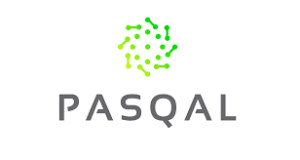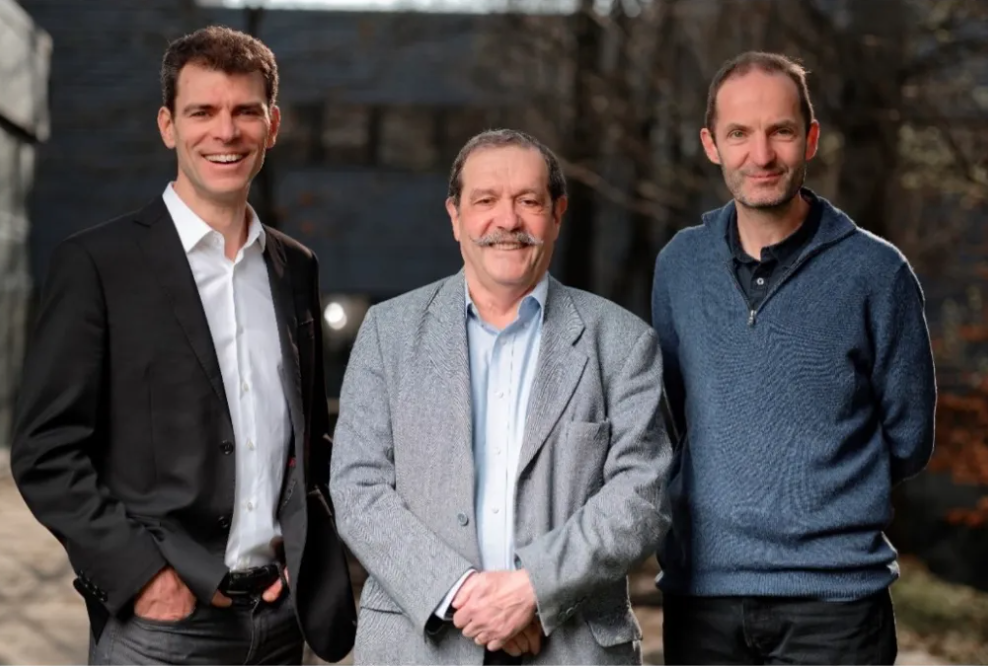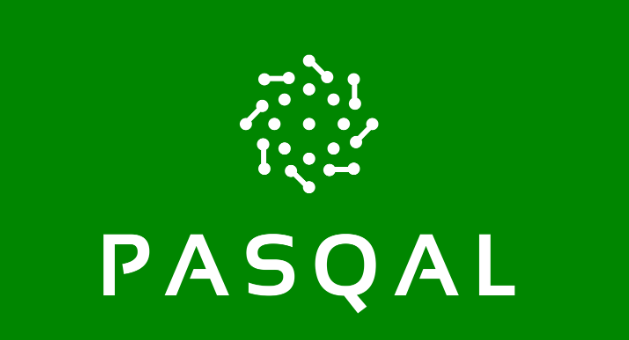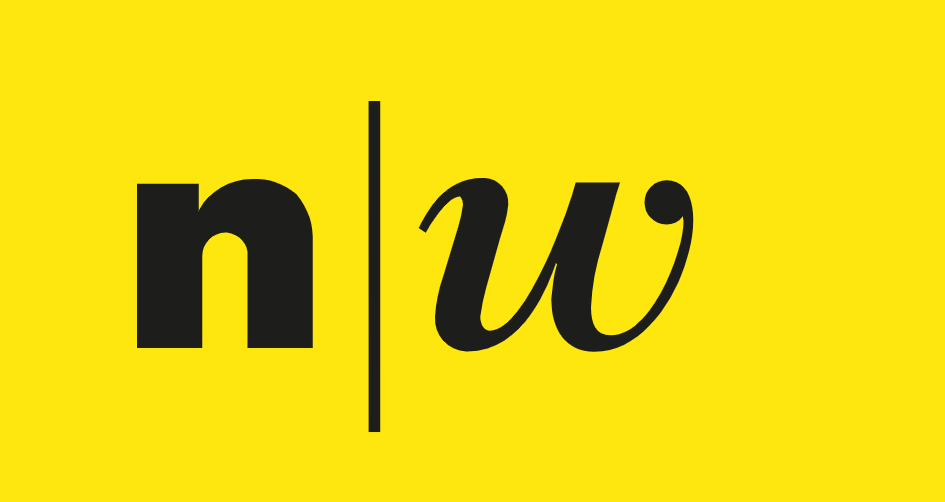Introduction
Few would argue the case against France being one of the leading enablers of quantum technology on the planet. Besides the thriving quantum startup ecosystem that has evolved since Muquans was founded over ten years ago, France can also count on well-funded national initiatives too, with the French National Center for Scientific Research and Pack Quantique (PAQ) prime examples of this.
According to our proprietary Quantum Intelligence Platform, there are 37 quantum startups and companies (excluding supply chain and end users) — all at various stages of evolution — involved with quantum technologies in the country. This number, undoubtedly, will grow as the space gains more credence over time, though pure-play quantum companies like Alice & Bob, NextGenQ, Quandela, and Qubit Pharmaceuticals are proof things are heading in the right direction.
Another company growing rapidly in the space is PASQAL, a startup developing a quantum computer using arrays of neutral atoms.
PASQAL’s Quantum Computing Background
Based in Palaiseau on the outskirts of Paris, PASQAL was founded as a spin-off from Institut d’Optique in 2019 by Georges-Olivier Reymond, Christophe Jurczak, Dr. Antoine Browaeys, Dr. Thierry Lahaye, and — wait for it, Professor Dr. Alain Aspect, recently awarded the 2022 Nobel Prize in Physics alongside John F. Clauser and Anton Zeilinger “for experiments with entangled photons, establishing the violation of Bell’s inequalities and pioneering quantum information science”.
In early 2022, it was announced that PASQAL had concluded a merger with Dutch quantum algorithm and software developer Qu & Co to leverage the synergies of the two startups to further develop a full-stack, neutral-atom quantum computer in achieving near-term commercial benefit. The merger also means operations are now in seven countries with more than 60 employees from over 15 countries, ultimately streamlining operational processes and significantly impacting the near-to-medium term quantum computing ecosystem, supported by an enlarged academic advisory board with leading professors in quantum chemistry and quantum machine learning.

PASQAL’s Core Quantum Technology
PASQAL’s IP, as already mentioned, was originally based on the work of Antoine Browaeys and Thierry Lahaye at Institut d’Optique (IOGS, CNRS), where they demonstrated the simulation of many-body problems intractable for classical High-Performance Computers (HPCs).
In contrast to other qubit modalities, the startup’s neutral atom device approach “can reach quantum registers with a larger number of qubits and higher connectivity with relative ease,” according to PASQAL.
So why, then — apart from the “larger number of qubits” and the “higher connectivity” — are neutral atoms so promising for quantum computing’s future? The magic sauce is that qubits made from neutral atoms are exceptionally well isolated from external noise, meaning their encoded state remains unbroken. Another benefit is it is easier to control these types of qubits using what is known as optical traps (or optical tweezers). This is where a laser beam is applied to allow objects to be picked up and placed in another location using lasers, enabling scientists to scale the number of qubits within a system.
PASQAL’s Quantum Products
At the heart of PASQAL’s technology are its programmable quantum simulators and quantum computers made of 2D and 3D atomic arrays. Apart from these offerings, PASQAL also develops lasers, vacuum technology, electronic controls, and a unique software stack — enhanced by the merger with Qu & Co, giving PASQAL access to an excellent quantum algorithm portfolio — to make individual atoms accessible to quantum programmers worldwide.
PASQAL’s quantum processing units (QPUs) are programmable using Pulser, an open-source framework for neutral atoms. Or as the company says, “pulse-level control over the QPUs, allowing users to define their quantum registers with arbitrary geometries and control the evolution of the system with a sequence of laser pulses.”
PASQAL’s Latest Release
In May of this year, PASQAL announced its PASQAL Cloud Services, a cloud service that allows end users to access Neutral Atoms Quantum Computers from all over the world. With it, customers have direct access to full-stack Neutral atoms quantum computers, enabling businesses to accelerate their development and complex projects.
This September, PASQAL and the Institut d’Optique announced they have developed a device that enables the operation of 324-atom quantum processors, This achievement, in essence, means the company is on course with its designed roadmap to offer 1000-qubit quantum processors and the associated industrial quantum advantage by 2022, confirming its ambition to combine a state-of-the-art quantum processor with algorithms designed to enhance its capabilities with the aim of delivering the best performance to its end users.

On the achievement, Georges-Olivier Reymond, President of PASQAL, said in a press release: “We are proud to demonstrate once again the extraordinary potential of neutral atoms quantum processors. The validation by our scientific peers certifies our roadmap towards a quantum processor delivering an industrial quantum advantage to our customers by 2022.”
PASQAL’s Most Significant Developed Patents
Besides its significant IP and patent portfolio in the field of neutral atoms quantum computers, PASQAL is making significant progress and has built up a substantial algorithm patent portfolio in 4 categories of quantum algorithms
• Hard optimization problems
It has been known for quite some time that neutral atoms quantum computers are a very good tool to solve QUBO or MIS structured optimization problems. Additionally, recently, PASQAL developed a quantum neural network approach for solving more general optimization problems (with hidden optimization functions which go beyond quadratic interaction and where the input can be both discrete as well as continuous parameters). This method, called Quantum Extremal Learning was developed together with PASQAL’s client Johnson & Johnson, where the two organizations applied the method to the problem of molecular discovery and optimization (paper: https://arxiv.org/abs/2205.02807)
• Solving differential equations
PASQAL has developed a whole family of proprietary algorithms aimed at solving different classes of differential equation problems. These range from solvers for highly nonlinear partial differential equations, to stochastic equations (applied for time-series data generation), integro-differential equations (for instance used for options pricing), equation discovery (used in situations where the structure of the differential equations one wants to solve are not well known, but some sparse measurement/market data is available) and for solving design-optimization problems (combining regression with optimization). These algorithms are currently being tested on real-world problems like weather modelling (with BASF), material deformation (BMW), aerodynamics (Airbus), multiphysics simulation (LG), engineering (Siemens) and computational finance (undisclosed client). A recent popular science blog about an application in acoustics simulation can be found here: https://medium.com/pasqal-io/playing-the-drums-with-quantum-computing-a6a7559e80d7
Relevant papers:
“Solving nonlinear differential equations with differentiable quantum circuits”, Kyriienko et al. (DOI:10.1103/PhysRevA.103.052416 or https://arxiv.org/abs/2011.10395)
“Quantum Quantile Mechanics: Solving Stochastic Differential Equations for Generating Time-Series”, Paine et al. (https://arxiv.org/abs/2108.03190)
“Quantum Model-Discovery”, Heim et al. (https://arxiv.org/abs/2111.06376)
“Generalised quantum circuit differentiation rules”, Kyriienko et al. (https://arxiv.org/abs/2108.01218)
“Quantum Kernel Methods for Solving Differential Equations”, Paine et al. (https://arxiv.org/abs/2203.08884)
“Protocols for Trainable and Differentiable Quantum Generative Modelling”, Kyriienko et al. (https://arxiv.org/abs/2202.08253)
“Quantum Extremal Learning”, Varsamopoulos et al. (https://arxiv.org/abs/2205.02807)
“Neutral Atom Quantum Computing for Physics-Informed Machine Learning”, Philip et al. (https://medium.com/pasqal-io/neutral-atom-quantum-computing-for-physics-informed-machine-learning-1f5ee4c055a6)
Integral Transforms in a Physics-Informed (Quantum) Neural Network setting: Applications & Use-Cases (https://arxiv.org/abs/2206.14184)
• Graph-based Machine Learning
PASQAL has developed a proprietary method to solve graph kernel machine learning problems, where it recently showed how to apply this method to predict the toxicity of molecules based on the structure. This algorithm, called Quantum Evolution Kernel, can be natively (efficiently) implemented on the PASQAL hardware operated in analog mode and is therefore a prime candidate to enable early quantum advantage.
Paper: “Quantum evolution kernel : Machine learning on graphs with programmable arrays of qubits”, Henry et al. (DOI:10.1103/PhysRevA.104.032416 or https://arxiv.org/abs/2107.03247)
• Hamiltonian Simulation
In a 2021 Nature paper [Quantum simulation of 2d antiferromagnets with hundreds of Rydberg Atoms; Nature 595, 233–238 (2021)], PASQAL co-founder prof. Antoine Browaeys demonstrated that the type of quantum computer offered by PASQAL is capable of producing results which go beyond what can be achieved with classical computers (so-called quantum supremacy)
This experimental result was achieved in the field of Hamiltonian simulation which has interesting applications in for instance condensed matter physics, quantum magnetism and superconductivity research
Recent breakthroughs have seen the PASQAL reach impressive system sizes, with quantum registers of 100+ atoms. “This number of interacting quantum particles,” as PASQAL reports, “enables the simulation of a many-body quantum system’s dynamics well beyond the capabilities of state-of-the-art classical methods.”
Who are PASQAL’s Main Competitors?
For this, we relied on our Quantum Intelligence Platform to furnish us with the relevant data, finding out — through our well-constructed and extensive taxonomy — PASQAL’s competitors building quantum computers using arrays of neutral atoms, or similar technology.
1. ColdQuanta
Growing out of decades of research in atomic physics and work at JILA, with intellectual property licensed through the University of Colorado and the University of Wisconsin, ColdQuanta was founded in 2007 and builds scalable and versatile cold-atom technology used by world-class organizations around the globe and deployed by NASA on the International Space Station.
ColdQuanta harnesses quantum mechanics to build and integrate a range of cold atom quantum computers, sensors, and networks. From fundamental physics to leading-edge commercial products, ColdQuanta enables “quantum everywhere” through its ecosystem of devices and platforms. Its cold atom method is adaptable to multiple applications across the quantum ecosystem. Currently, the company is building two quantum information platforms, accessible via the cloud.
Location-wise, ColdQuanta has its headquarters in Boulder, Colorado, with offices in Madison, Wisconsin and Oxford, UK.
2. Atom Computing
Berkley, California-based Atom Computing was founded in 2018 by Benjamin Bloom and Jonathan King with $5 million in seed funding.
Its goal is to build the world’s most scalable and reliable neutral atom quantum computers — from Nuclear-spin qubits made from neutral atoms — which offer a more stable platform to perform accurate error correction. The key to Atom Computing’s approach is in developing a flexible platform that supports a universal quantum gate set, allowing developers to formulate various quantum algorithms that can be applied to several different use cases.
An important milestone in all this was reached in September 2022, when Atom Computing opened its largest research and development facility in Boulder, Colorado, which The Quantum Insider’s President, Evan Kubes, had the honour of attending the opening ceremony.
3. QuEra Computing
Founded by Mikhail Lukin, Markus Grenier, Vladan Vuletic, Dirk Englund, and Nathan Gemelke in 2018, QuEra Computing is a neutral-atoms-based quantum computing startup, located in Boston, near Harvard University.
The company is founded on pioneering research recently conducted at Harvard and MIT. QuEra’s mission is to build the industry’s most scalable quantum computers to tackle useful but classically intractable problems for commercially relevant applications in optimization, simulation, materials science, pharmaceuticals, and more.
How is PASQAL Funded
Again, for this, we leveraged the power of our data platform to get PASQAL’s funding story from the very beginning.
Starting in Q1 of 2019, TPY Capital and French venture capital firm Quantonation put their trust in PASQAL’s IP, ploughing an unknown amount in a Seed round. In Q4 of 2020, Quantonation was involved again, investing north of $3 million in a Seed round. The summer of 2021, however, saw a sea change in the startup’s bank account and a $30-million Series A, with Quantonation the usual suspect along with Runa Capital and Positron Ventures taking part in the round.
As a side note, Qu & Co — the company PASQAL merged with in Q1 of this year — had raised a similar amount prior to their merger, with $3.3 million coming in a Seed round in 2020, led by Breega. Breega was again a participant investor in March of 2022 in a $29.7-million Series A, which BPIFrance, Elaia Partners and Supernova Invest also took part in.
Who Are PASQAL’s Most Significant Quantum Customers
Here’s where it gets interesting, as PASQAL can boast a client/partnership list that includes Airbus, pharmaceutical giant Johnson & Johnson, LG, Thales, EDF, BMW Group, Cineca, and Credit Agricole.
The last two, Cineca, and Credit Agricole, were the first two customers to take advantage of the PASQAL Cloud Services in private beta.
Cineca, an Italian inter-university consortium which operates one of the world’s most respected supercomputing centres, has some of its member universities developing demonstration systems that integrate traditional HPC functionalities with the help of PASQAL’s quantum systems used as coprocessors, no doubt.
By contrast, CA CIB — the Corporate and Investment Banking arm of Crédit Agricole Group and the 12th largest banking group worldwide in terms of tier 1 capital — is utilizing PASQAL’s IP to investigate how quantum algorithms can give them a competitive advantage in risk management and strategic posturing in capital markets.
PASQAL’s Quantum Partnerships
Apart from the partnerships with the companies in the previous section, PASQAL has collaborated with or is still continuing to collaborate with several commercial and academic entities — here is a selection of them:
1. CentraleSupélec:
A top French graduate engineering school of Paris-Saclay University in Gif-sur-Yvette, France, PASQAL’s has joined forces with CentraleSupélec in an academic partnership, which aims to offer students valuable know-how to meet the expectations of players in the quantum market.
2. Siemens:
PASQAL’s partnership with Siemens, a German multinational conglomerate corporation and the largest industrial manufacturing company in Europe, is to research quantum applications in computer-aided engineering, simulation and testing.
3. MBDA:
A European multinational developer and manufacturer of missiles, MBDA announced a partnership to develop a quantum approach of optimization in the field of defence to run on PASQAL’s quantum computers.
4. BASF:
The world’s largest chemical company is leveraging PASQAL’s quantum processors to predict weather patterns.
5. ParityQC
An Austrian QC startup, the two companies decided to join efforts to implement the ParityQC architecture, which is particularly well suited for the PASQAL neutral atom platform, leading — both companies hope — to major breakthroughs in the field of quantum optimization, solving relevant industrial use-cases.
6. NVIDIA
PASQAL’s collaboration with NVIDIA, a US-based software and fabless company which designs graphics processing units (GPUs), application programming interfaces (APIs) for data science and high-performance computing as well as system-on-a-chip units, was announced in late 2021 and is set to establish a Quantum Computing Center of Excellence, featuring a cluster of 10 NVIDIA DGX A100 systems with NVIDIA InfiniBand networking to enhance its portfolio of solutions.
Where is PASQAL Heading in The Years To Come
This can always be conjecture and open to many interpretations, but PASQAL — like many other companies in the quantum space — has a defined plan. We thought it best to go straight to the source here and give you the opinions of the team itself:
“Almost forty years ago, I performed experiments showing that entanglement is a reality in spite of Einstein’s doubts. It belonged to the conceptual step of the second quantum revolution. In recent years, I have been delighted to learn of ideas to use entanglement for solving some problems exponentially faster than with classical computers. This is the so-called Quantum Advantage. With PASQAL, I am glad to be in the game of the technological stage of the second quantum revolution, as I was a player in its conceptual stage.”
— Nobel Laureate for Physics and Co-Founder of PASQAL, October 6, 2022
“I’m so proud to join the amazing PASQAL’s team. For a deep-tech entrepreneur, being part of the upcoming quantum industrial breakthrough is one opportunity that rarely presents itself. PASQAL is on track to deliver major achievements, and it was obvious for me to take up the challenge of deploying it in North America”
— Raphaël de Thoury, CEO of PASQAL Canada, September 27, 2022
“We are proud to demonstrate once again the extraordinary potential of neutral atoms quantum processors. The validation by our scientific peers certifies our roadmap towards a quantum processor delivering an industrial quantum advantage to our customers by 2022.”
— Georges-Olivier Reymond, President of PASQAL, September 14, 2022
“We have demonstrated our technology’s potential to solve real-world challenges in global industries including energy, finance and automotive, and we look forward to the future solutions our technology can bring to the world’s most critical challenges.”
— Georges-Olivier Reymond, CEO and founder of PASQAL, on being recognized as a Gartner Cool Vendor, June 21, 2022
PASQAL’s Main Strengths
For this, it’s easy just to look at the above quotes, which clearly emphasize PASQAL’s philosophy and attitude toward its intellectual property.
First and foremost, having a Nobel laureate on board is advantageous, not simply for its prestige but for the obvious expert analysis it can bring.
Second of all, PASQAL can leverage the years of research in optics it has under its belt, which has allowed the company to achieve unique breakthroughs thus far.
In a blog post published this September, PASQAL states:
Neutral atoms have already shown their potential for applications, fostering scientific discoveries (Nature 2021 [2]; arxiv 2022 [3]). Due to their room temperature operation and natural properties, neutral atoms are known to be a technology with high scaling potential for quantum processors. However, to the company’s knowledge, this is the first realization that clearly demonstrates this potential, before any other.
PASQAL is therefore exploiting this technology for industrial applications. For example, the company has developed a Quantum Machine Learning algorithm applicable to smart grids. In the long run, it will allow for improvement in the efficiency of electricity distribution, avoiding at the same time the recourse to heavy hardware developments which would offer a less fast and uncertain gain.
PASQAL’s Weaknesses
With the good comes the bad.
According to a paper published in the NTT Technical Review, Making a Quantum Computer Using Neutral Atoms by Tetsuya Mukai, a Senior Research Scientist at NTT Basic Research Laboratories,
The drawbacks of the atomic quantum computer include the difficulty of the laser cooling technique and the small number of researchers who are sufficiently skilled at atomic manipulation.
 Left to right: Georges-Olivier Reymond (Co-founder & CEO of PASQAL), Alain Aspect (Co-founder & Scientific Advisor PASQAL, as well as Nobel laureate for his work on quantum entanglement), Antoine Browaeys (Co-founder & Chief Scientific Officer of PASQAL)
Left to right: Georges-Olivier Reymond (Co-founder & CEO of PASQAL), Alain Aspect (Co-founder & Scientific Advisor PASQAL, as well as Nobel laureate for his work on quantum entanglement), Antoine Browaeys (Co-founder & Chief Scientific Officer of PASQAL)
So, it’s whether PASQAL has further success with laser cooling. Mukai goes on to say, however, that: “NTT is the only private company with researchers who are experts in laser cooling, and it has succeeded in making a Bose-Einstein condensate, which has the lowest temperature in the universe.”
If NTT can do it, there’s nothing to say PASQAL can’t improve on its laser cooling techniques, too.
Where Are PASQAL’s Best Opportunities
As per another PASQAL blog post, the company “has developed a Quantum Machine Learning algorithm applicable to smart grids. In the long run, it will allow it to improve the efficiency of electricity distribution, avoiding at the same time the recourse to heavy hardware developments which would offer a less fast and uncertain gain.”
Some of PASQAL’s present customers and collaborations are an indicator of the future direction its technology can serve different verticals, with the BASF partnership in predicting weather patterns an excellent use-case.
PASQAL’s Quantum Computing Key Takeaways
PASQAL — like Atom Computing and ColdQuanta — is on the right path to achieving its goals. A knowledgeable team led by founders (including a Nobel laureate) loaded with experience in both research and the commercial aspects of the industry goes a long way and will serve PASQAL well into the future.
For more market insights, check out our latest quantum computing news here.




















